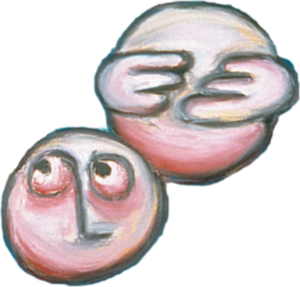
What’s the smartest bid at an auction? What is Winner’s Curse? Is it ok to go over your limit? What will you never know and does it matter?
Can Nobel Prize auction theory help you?
The Nobel Memorial Prize for Economics was awarded for insights including what happens when you’re bidding on a home — in auctions, private sales and Expressions of Interest
- Because you can’t know what’s happening behind the scenes, you don’t have the advantages of the fully-informed.
- Information adds value — if a seller provided building inspection and pest reports, for example, you would bid with more confidence.
- During public auctions, bidders learn how much other bidders value a home and revise their own ideas — up or down.
- “Winner’s Curse” is real. Everyone knows what’s public about what’s for sale but those with private plans are more likely to overestimate and overpay.
- There’s more. Probably more than you want to know, in a video here.
••••••••••••••••••••••
Those (and more) are lessons we learned buying thousands of homes.
There is only one market that matters: You.
No matter whether it’s a shack or a mansion, an auction or any other method of sale, get started by answering two questions:
- What’s your limit?
- How much is this home worth to you?
You’ll never know all there is to know, but those answers will give you the basis of a workable strategy.
 Your limit. No nightmares.
Your limit. No nightmares.
Living anywhere that’s sending you broke is no way to live. You need to know how much you can comfortably spend to buy outright or repay each month.
If you’ll be borrowing, work out what the repayments will be when interest rates hit 8% (that’s well above recent highs and buys you some peace of mind).
Add the costs of rates, water, energy, maintenance…
Get to a number you can be relaxed about. That’s more important than price. That’s your limit.
How much should you pay?
One clue: It’s not what anyone else is ready to fork out.
You are the only market that matters.
How much is this home worth to you?
Look at similar homes. Judge whether the games room is worth more to you than the bigger garden. Will you use either? If the answer is no, for you they have no value.
Do you have kids at school? Can they get there on their own? How long is your commute? How far are you from the milk you forgot to pick up?
Is there grass to mow? Is there a spot where you can catch the morning sun?
Can you put a price on those?
You can when you find homes that have them and learn what they sold for.
They’re within your limit?
You’re on your way.
Private sale? Auction? Expressions of Interest?
The big difference is between auctions and the others. At an auction you see what everyone is bidding — in EOIs and private sales only the agent and (not always) the seller really knows.
Each needs a different strategy.
Auctions. And the smartest bid.
It’s on. The auctioneer calls for bids.
You get things started: “One million!”
Bidder Two raises a hand: “One million and fifty thousand!”
Another hand goes up: “One million, one hundred thousand!”
Up, up, up…
You start to wonder: “Did I get it wrong? Should I go with them?”
So it goes…
 Auctioneers tell sellers it’s their fabulous skills that get the highest prices.
Auctioneers tell sellers it’s their fabulous skills that get the highest prices.
Wrong. It’s bidders pushing bidders.
When that happens, it causes re-thinks.
“If they think it’s worth that much, should I raise my bid to somewhere north of what I thought the place was worth?”
If you’ve really done your homework (see below), you’ll know the answer: “No!”
What’s the smartest bid at an auction? Don’t.
You know what the home is worth to you, you know what your limit is.
Make an offer prior to the auction. Make it take-it-or-forget-it with a deadline.
That’s the right price. That’s what it’s worth to you.
You win? You’ve won. You don’t? Nothing’s lost and there’s nothing to stop you bidding when the auction does come around. If it doesn’t reach your limit, you’re still looking good.
Private sales, EOIs and The Winner’s Curse.
Winner’s Curse. is that even a thing?
Well … yes.
It’s a private sale or EOI and you’re working out how much to offer. You check everything. All the predictions, all the valuations. You’re sure how much that home should sell for.
And then …
You decide that it’s perfect. Exactly what you need.
But …
You don’t know what anyone else is ready to pay.
OK. You’ll pay what it takes. You’ll stretch yourself to breaking point and knock everyone else out.
Later, much later, the agent lets on that you paid for an orchestra when you could have got it for a song.
You curl up into a little ball. You sob.
You’ve been hit by Winner’s Curse.
You started from the wrong place. You need to begin with how much that home is worth to you.
When you know that, the offer you make will be a no-loser.
You win at a price you can justify or live to bid another day.
Don’t be sucked in by an agent’s games
Too many agents use prices to manipulate both buyers and sellers.
When you ask, they’ll swear this home will go for $X because they think that’s in your budget when they know it will go far above that.
Do they really care whether you’ll buy? Only if you’re a real prospect. What they do want is to see you at the auction, adding to the buzz and impressing their seller with what a good job they’ve done getting so many people along.
If this was a movie, you’re a bit player. You’ll be gone by the next scene.
(On the other side of the action, to persuade the seller to give them the home to sell, they’ll insist that only they can get $X plus plus plus when they know it will never go that high — they’ll lower the seller’s expectations later — they call it conditioning).
So go ahead and ask…
“What will it sell for?”
If you enjoy watching an agent bob and weave, that’s your question.
Then you might follow up with:
“What’s the reserve?”
Just don’t expect straight answers.
The way to end the games? Stop playing.
Do your own homework.

At last! You’ve found it!
The home made just for you.
It has your name all over it. Now all you have to do is buy it.
There’s going to be an auction…
You do the numbers. You ask the agent what it will go for (it’s in your budget!). You check every nook, every cranny, every powerpoint, every cupboard. You get it inspected. No stone unturned.
Comes the day. You’re ready. Ready for anything.
“Do I hear …?”
You’re knocked out at the first bid. A developer is going to knock your house down.
But, but, but…
The agent said it wouldn’t go higher than…
It starts to sink in.
The agent wanted you there. Wanted a heap of bidders to impress the seller and to suggest that buyers had to go hard. You were just a bit player.
Sorry.

“I’m bidding. I’m scared.”
First question: What are you afraid of?
Missing out? Paying too much?
They’re related. You’re scared you’ll miss out or you’ll pay too much.
Either way, you lose.
The Nobel researchers showed that it’s when you have too little information that worry creeps in.
If it’s an open auction you can see what others are bidding. If it’s a private sale or Expressions of Interest, you may never know.
Then what is the right price?
One clue: It’s not what anyone else is ready to fork out.
Do your homework. Work out your limit and what this home is worth to you.
Here’s your homework
There are two big unknowns about how you can win an auction:
- How much to bid
- You
Are you in the ballpark?
You know the area? You know what comparable homes have been going for? Good start.
You don’t? Hit Google and the real estate sites and search for homes like the one you’re considering and see what’s sold at what prices. Keep doing that until you have a feel for what to expect. You’ll get there.
Ask the agent and doubt the answer.
Ask competing agents in the area. Most will know the property.
Ask 10 other people at inspections what they think it will sell for — if they’re on the same page they can be amazingly accurate.
Check the app we built: realAs.com — if a home is listed, on average it comes close to within 5% of actual selling prices.
Now you know what it should sell for. If it goes over, be ready to walk away.
It’s within your limit? You’re on.
Next Unknown: You.
We’ve been to thousands of auctions. We’ve seen how people lose:
- They run out of money
- Nerves
You’ve done your homework on how much to bid. You have the money.
That leaves nerves.
How do you overcome those?
You don’t need to. Learn to expect them.
Don’t worry about when bidding starts. It’s when you get down to the business end, when it’s going, going… when collywobbles can matter.
Expect that. “Live” the auction, in your mind, over and over until it’s a bore.
When the crunch comes, go big. Make your voice louder. Make it look like you’ll never walk away.
But never never never go over your limit.
Let others overpay. You’ll win another day.
Morrell and Koren were Australia’s first home buyers’ advocates.
At the top end, there’s hardly a home that we don’t know.
Top End Trends is an insider’s view of the highs, the lows, the clever and the not so clever in all kinds of real estate and its buyers, sellers and (often) estate agents.

